Professional Training
Professional Training
May 2025
Microsoft Certified: Azure Fundamentals (AZ-900)
- Cloud Concepts:
- Understanding cloud computing benefits (scalability, elasticity, fault tolerance)
- Exploring cloud service types (IaaS, PaaS, SaaS)
- Comparing public, private, and hybrid cloud models
- Core Azure Services:
- Learning about Azure regions, availability zones, and data centers
- Overview of compute resources (Virtual Machines, App Services, Containers)
- Understanding storage solutions (Blob, Disk, File, Archive)
- Familiarity with Azure networking (Virtual Networks, Load Balancers, VPN Gateways)
- Azure Management Tools:
- Using the Azure Portal, Azure CLI, and Azure PowerShell
- Introduction to Azure Resource Manager and resource groups
- Understanding templates and automation tools
- Security, Compliance & Identity:
- Overview of Azure Active Directory and identity services
- Implementing role-based access control (RBAC)
- Learning about security tools (Azure Security Center, Defender for Cloud)
- Understanding compliance frameworks and Microsoft privacy policies
- Azure Pricing & Support:
- Understanding pricing calculators and total cost of ownership (TCO)
- Learning about Azure subscriptions and billing models
- Exploring SLA (Service Level Agreements) and lifecycle of services
- Identifying available support plans and service level tiers
- Governance and Management Features:
- Working with Azure Policies and Blueprints
- Implementing resource locks and cost management tools
- Monitoring performance using Azure Monitor and Log Analytics
- Cloud Adoption and Strategy:
- Understanding cloud migration strategies and best practices
- Exploring the Microsoft Cloud Adoption Framework
- Aligning cloud adoption with business goals and priorities
April 2025
CompTIA Network+
- Networking Concepts:
- Understanding OSI and TCP/IP models
- Recognizing different network types (LAN, WAN, PAN, MAN)
- IP addressing and subnetting (IPv4 and IPv6)
- Routing and switching fundamentals
- Network Infrastructure:
- Identifying networking hardware (routers, switches, access points, modems)
- Structured cabling types (Ethernet, fiber optics, coaxial)
- Implementing network topologies and architecture
- Deploying wireless standards (802.11 a/b/g/n/ac/ax)
- Network Operations:
- Monitoring and optimizing network performance
- Using tools like ping, tracert, ipconfig, and Wireshark
- Managing network documentation and diagrams
- Understanding disaster recovery and high availability
- Network Security:
- Identifying security threats (DoS, MITM, phishing, spoofing)
- Implementing access controls, authentication, and encryption
- Securing wireless networks and VPN connections
- Applying physical and logical security controls
- Network Troubleshooting:
- Using a structured troubleshooting methodology
- Diagnosing connectivity issues and configuration errors
- Interpreting network logs and alerts
- Resolving issues related to DNS, DHCP, NAT, and firewalls
- Network Tools & Commands:
- Using command-line tools (netstat, nslookup, arp, nbtstat)
- Leveraging cable testers, loopback plugs, and TDRs
- Performing packet analysis and baseline comparisons
- Cloud and Virtualization Technologies:
- Understanding cloud service models (IaaS, PaaS, SaaS)
- Working with virtualization and network functions virtualization (NFV)
- Exploring hybrid, public, and private cloud environments
- Professionalism & Documentation:
- Following change management and standard operating procedures
- Documenting configurations, policies, and network diagrams
- Communicating effectively with stakeholders and teams
August 2024
CompTIA A+
- Hardware:
- Identifying and installing PC components (motherboards, CPUs, RAM, storage)
- Assembling and disassembling desktop and laptop computers
- Troubleshooting hardware issues
- Operating Systems:
- Installing, configuring, and managing Windows, Linux, and macOS
- Understanding file systems and command-line tools
- Using system utilities and task automation
- Networking:
- Understanding network types, topologies, and protocols
- Setting up and securing small office/home office (SOHO) networks
- Troubleshooting connectivity issues (IP addressing, DNS, DHCP)
- Security:
- Recognizing security threats (malware, phishing, social engineering)
- Implementing basic security measures (firewalls, antivirus, permissions)
- Following best practices for physical and digital security
- Mobile Devices:
- Configuring and supporting mobile OS (iOS, Android)
- Setting up wireless connections and syncing
- Troubleshooting mobile apps and devices
- Software Troubleshooting:
- Diagnosing OS, application, and boot issues
- Resolving slow performance, blue screens, and software errors
- Hardware Troubleshooting:
- Using diagnostic tools and procedures
- Addressing printer, display, and peripheral problems
- IT Operations:
- Managing documentation, inventory, and change management
- Understanding SLA, ticketing systems, and communication skills
- Practicing safety and environmental procedures (ESD, recycling)
- Professionalism & Customer Support:
- Communicating effectively with non-technical users
- Providing customer-focused support and service
- Applying best practices in help desk and support roles
October 2023
CompTIA Security+
- Security Fundamentals:
- Developed a strong understanding of foundational security concepts.
- Gained knowledge of different types of threats and vulnerabilities.
- Network Security:
- Acquired skills in securing networks and data transmissions.
- Implemented encryption techniques to protect sensitive information.
- Compliance and Operational Security:
- Learned about legal and regulatory requirements related to cybersecurity.
- Implemented security policies and procedures to ensure compliance.
- Threats, Attacks, and Vulnerabilities:
- Identified and analyzed various types of security threats.
- Developed strategies to defend against common cyber attacks.
- Identity and Access Management:
- Implemented measures to control access to systems and data.
- Managed user authentication and authorization processes.
- Cryptography:
- Applied cryptographic techniques to secure communications.
- Implemented encryption algorithms for data protection.
- Security Technologies and Tools:
- Familiarity with various security tools and technologies.
- Hands-on experience with intrusion detection/prevention systems.
- Incident Response and Recovery:
- Developed skills in responding to and recovering from security incidents.
- Created incident response plans to minimize damage and downtime.
- Security Architecture and Design:
- Designed and implemented secure network architectures.
- Considered security in the development of systems and applications.
- Security Assessments and Audits:
- Conducted security assessments to identify vulnerabilities.
- Participated in security audits to ensure the effectiveness of controls.
- Security+ Certification:
- Achieved CompTIA Security+ certification, demonstrating proficiency in cybersecurity.
January 2024
TryHackMe SOC Level 1 Course
- Utilized SIEM tools such as Splunk and Elastic to manage and respond to security incidents.
- Detected and analyzed traffic anomalies using industry-standard tools such as Wireshark, Snort, Networkminer, and Zeek.
- Applied Digital Forensics and Incident Response (DFIR) methodologies and best practices to identify, contain, eradicate, and report on cyber incidents and threats using tools such as Autopsy, Redline, KAPE, Volatility, and Velociraptor.
- Leveraged cyber threat intelligence skills and tools, including Yara, OpenCTI, and MISP, to gather, analyze, and share threat information. Tracked and profiled cyber threat actors, campaigns, indicators, and TTPs using these tools.
- Acquired knowledge in endpoint security monitoring fundamentals and toolsets, with a specific focus on Windows Processes, Sysinternals, Sysmon, and Event Logs.
November 2023
Google Cybersecurity Course
- Acquired in-depth knowledge of key Cybersecurity frameworks including NIST, MITRE, and Cyber Kill Chain, recognized as pivotal guidelines and structural foundations essential for organizational security strategies.
- Identified risks, threats, and vulnerabilities in web applications, such as SQL injection, cross-site scripting, and sensitive data exposure, using web security scanning tools.
- Accumulated valuable practical, hands-on experience by actively engaging in tasks that involved Python programming, Linux system administration, and SQL database management, encompassing coding, system configuration, and database querying.
Education
December 2019
Thomas Edison State University, Trenton, NJBSAST in Information Technology
• Honors: Arnold Fletcher Award.
• Excelled in all information technology courses.
• Excelled in all information technology courses.
Certificates
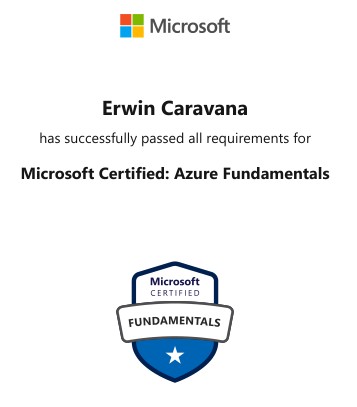
Microsoft Certified: Azure Fundamentals (AZ-900)
May 19, 2025
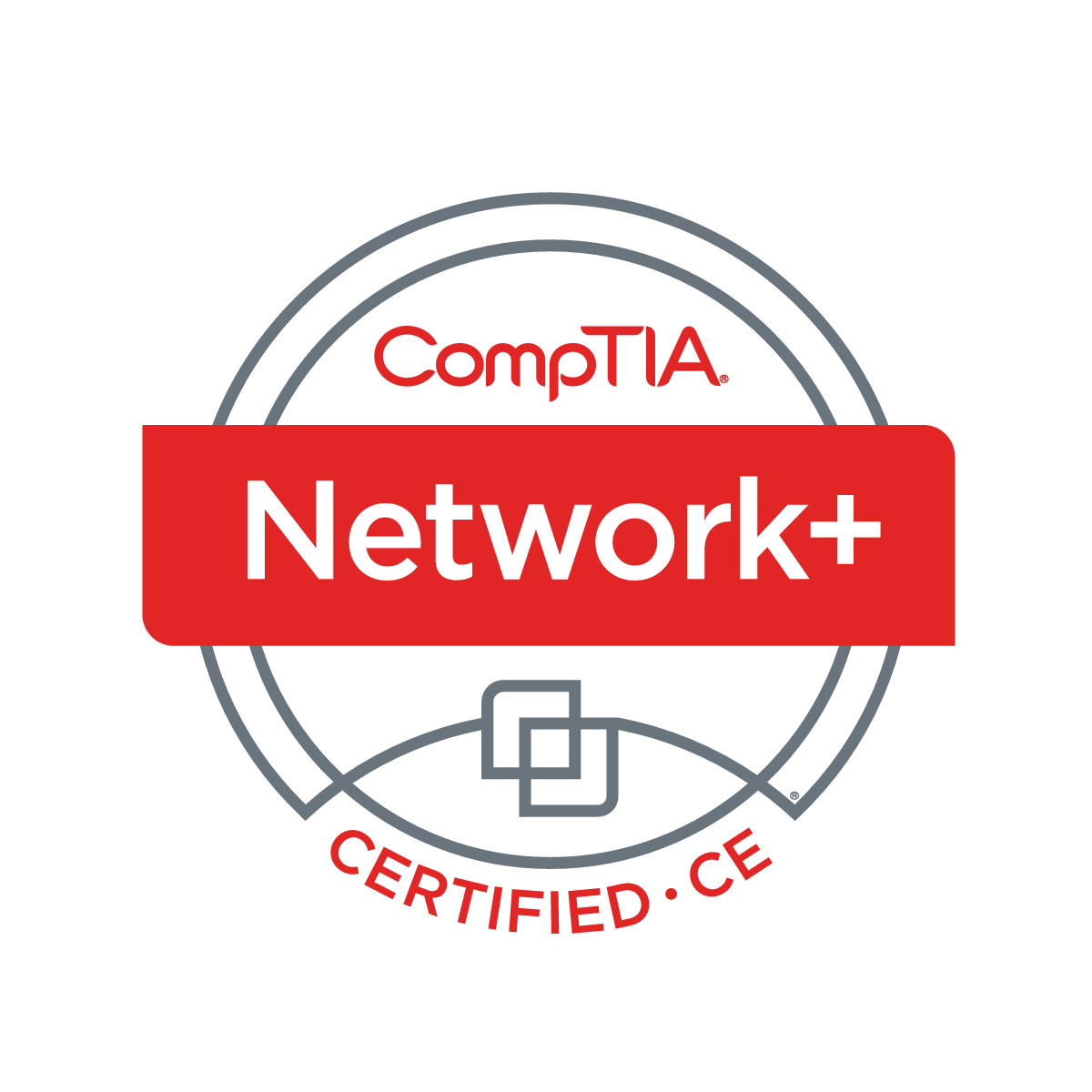
ComptTIA Network+
April 30, 2025
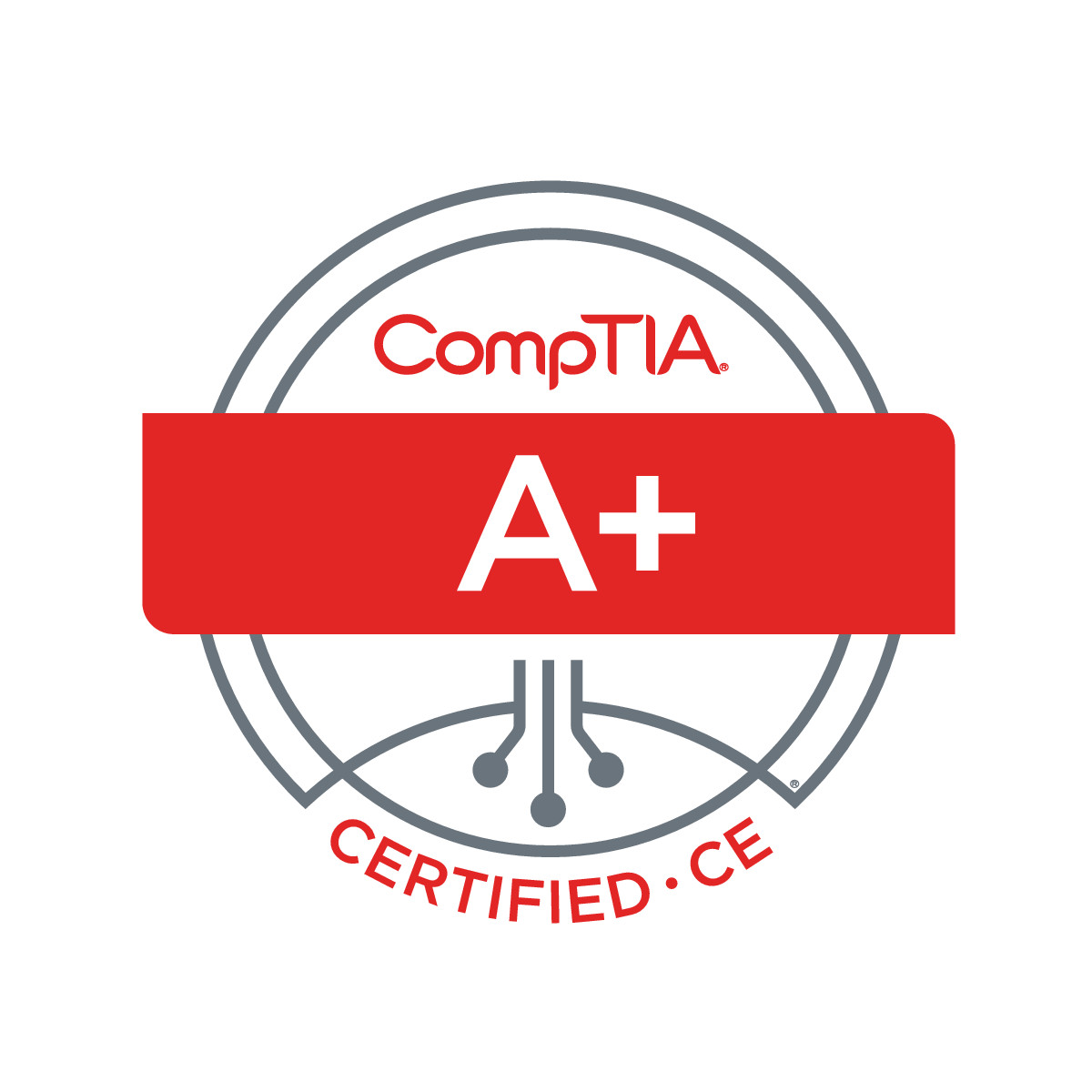
CompTIA A+
August 20, 2024
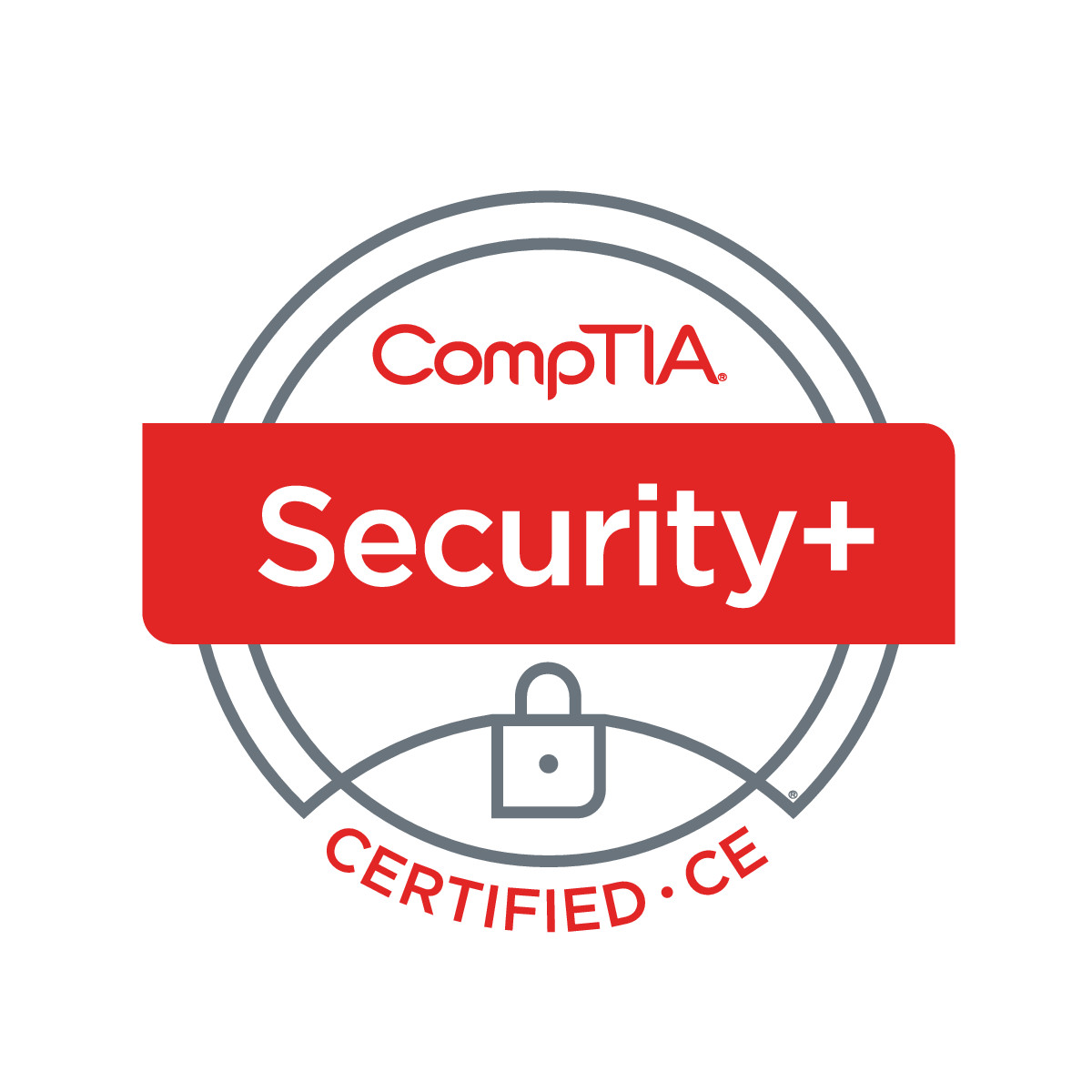
CompTIA Security+
October 27, 2023
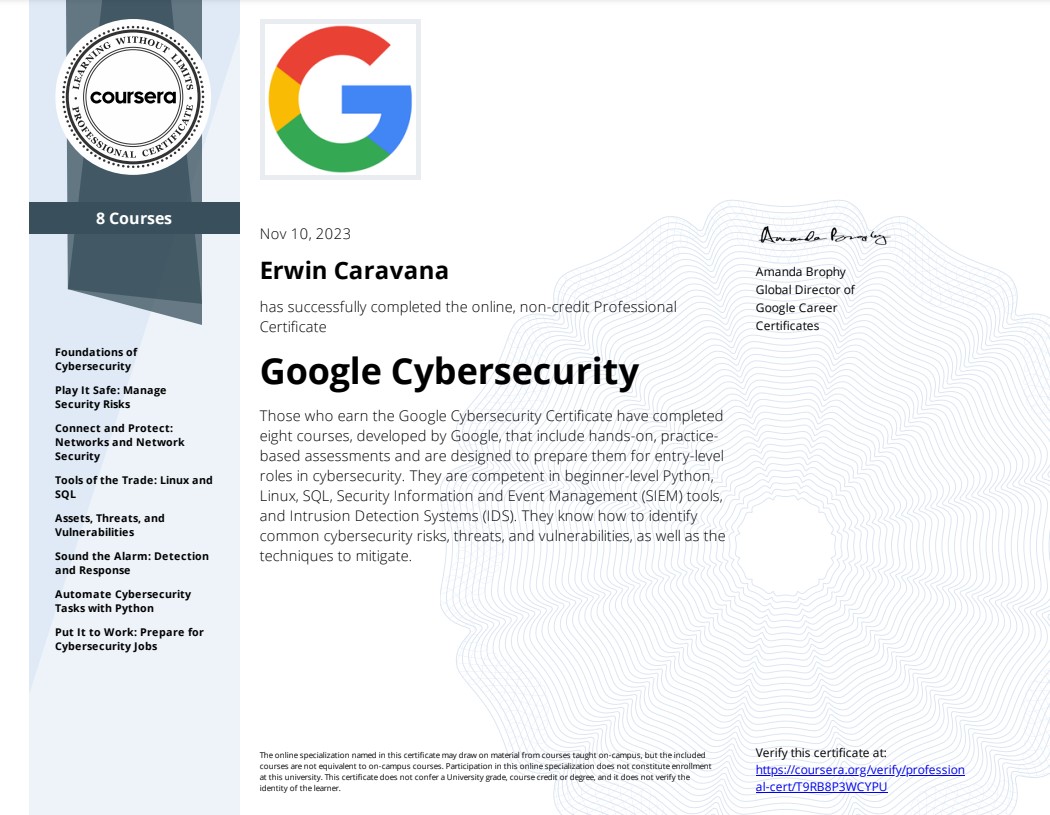
Google Cybersecurity Certificate
T9RB8P3WCYPU
November 2023
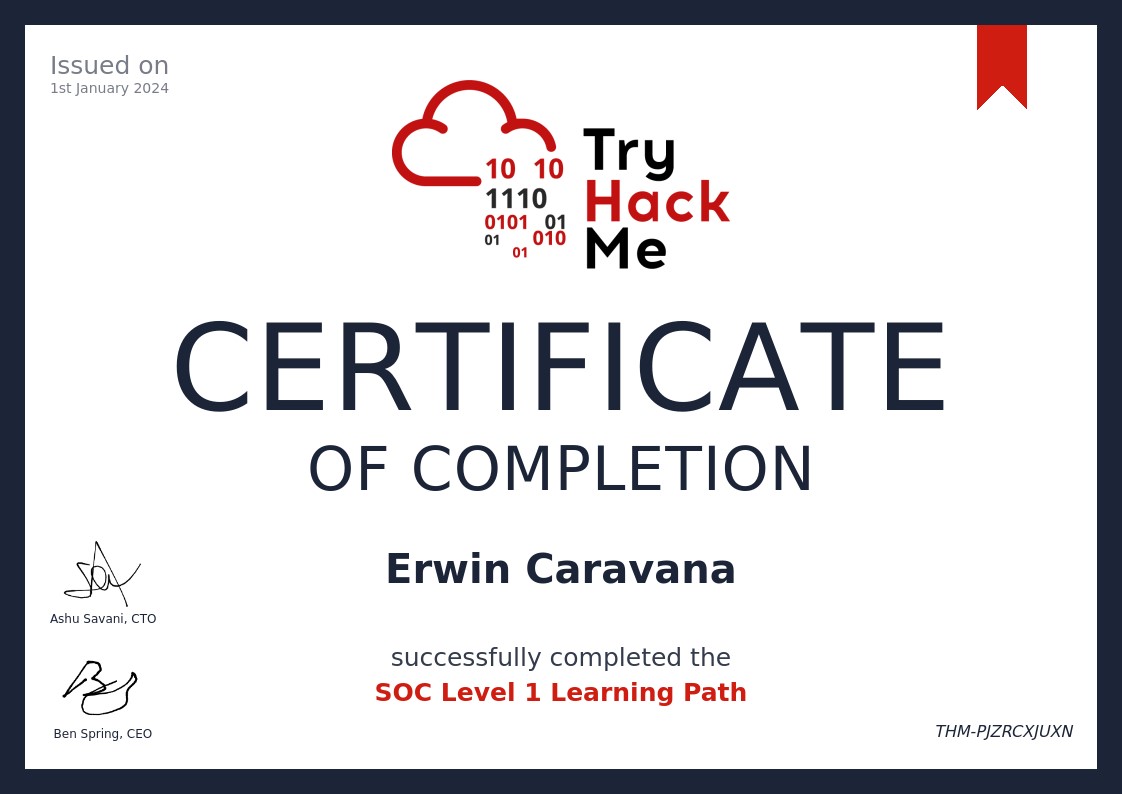
TryHackMe SOC Level 1
THM-PJZRCXJUXN
January 2024